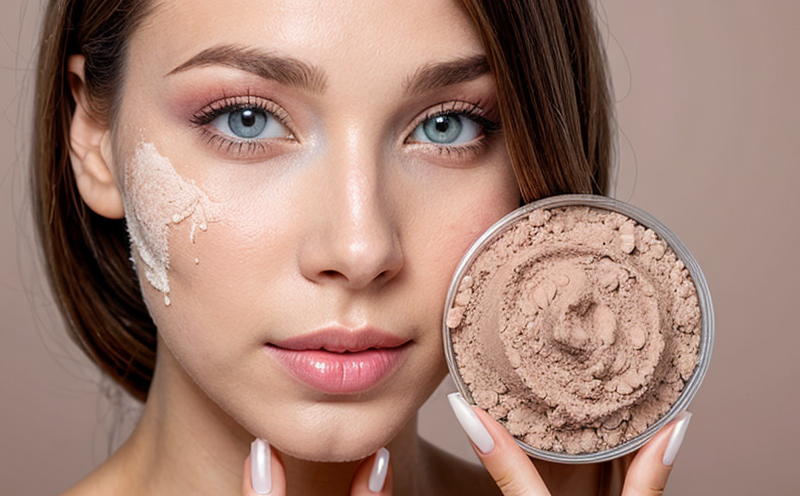Surfactant Sensitization Testing in Hair Products
The use of surfactants in hair products is widespread due to their ability to cleanse, foam, and emulsify. However, the presence of certain surfactants can lead to sensitization reactions, which are adverse immune responses triggered by contact with specific chemicals. This service focuses on assessing the potential for sensitization caused by surfactants used in hair products.
Surfactant sensitization testing is essential for ensuring product safety and compliance with international standards. Hair care products often contain a wide range of ingredients, including surfactants such as sodium lauryl sulfate (SLS) or cocamidopropyl betaine. These compounds can cause skin irritation or allergic reactions if not properly evaluated.
The testing process involves exposing human volunteers to the test substance and monitoring for any signs of sensitization over a specified period. The results help manufacturers make informed decisions about ingredient selection, formulation changes, and labeling requirements. This service supports quality management by providing critical data needed to ensure consumer safety and regulatory compliance.
For instance, when developing new hair care products, it is crucial to conduct thorough surfactant sensitization testing early in the development process. This allows for timely adjustments if any issues arise during the testing phase. Additionally, this service can help identify potential allergens or irritants that may need to be avoided or minimized in future formulations.
The importance of surfactant sensitization testing extends beyond just preventing adverse reactions; it also contributes significantly to reducing product recalls and liability risks associated with unsafe cosmetics. By adhering to stringent quality control measures, companies can build trust among consumers and maintain a positive brand reputation.
It is important to note that while this service addresses the specific needs of hair care products containing surfactants, similar principles apply across various cosmetic sectors where sensitization concerns are relevant. Therefore, understanding the broader context helps in comprehending why such testing is vital for overall product safety and regulatory adherence.
| Applied Standards | Description |
|---|---|
| ISO 10993-11:2015 | Evaluation of allergenicity potential of products intended for contact with the skin or mucous membranes |
| ASTM E678-14 | Standard test method for evaluating the sensitizing properties of chemicals on guinea pigs |
| IEC 60335:2019 | Safety of household and similar electric appliances - Particular requirements for hair care appliances |
The application of these standards ensures consistency and reliability in the testing process, allowing manufacturers to compare results across different studies or laboratories. Compliance with recognized international guidelines adds credibility to test outcomes and facilitates global market access.
In conclusion, surfactant sensitization testing plays a pivotal role in safeguarding consumer health while promoting responsible product development practices within the beauty industry.
Applied Standards
| Standard | Description |
|---|---|
| ISO 10993-11:2015 | Evaluation of allergenicity potential of products intended for contact with the skin or mucous membranes. |
| ASTM E678-14 | Standard test method for evaluating the sensitizing properties of chemicals on guinea pigs. |
| IEC 60335:2019 | Safety of household and similar electric appliances - Particular requirements for hair care appliances. |
The application of these standards ensures consistency and reliability in the testing process, allowing manufacturers to compare results across different studies or laboratories. Compliance with recognized international guidelines adds credibility to test outcomes and facilitates global market access.
Quality and Reliability Assurance
The quality of our testing services is paramount, ensuring that every result reflects accurate and reliable data. We employ experienced scientists who are well-versed in the latest methodologies and techniques required for surfactant sensitization testing. Our state-of-the-art facilities equipped with advanced instrumentation provide precise measurements and analyses necessary for comprehensive evaluation.
Our commitment to excellence extends beyond just technical expertise; we also prioritize customer satisfaction by offering clear communication throughout each project. From initial consultation through final report delivery, our team ensures that clients receive detailed insights into their products' performance based on rigorous testing protocols.
In addition to internal quality assurance processes, we participate actively in external audits conducted by independent bodies to maintain strict adherence to industry best practices. This continuous improvement approach guarantees that all tests meet or exceed regulatory requirements and industry standards.
By leveraging our robust infrastructure and skilled personnel, we deliver high-quality results consistently across various testing scenarios. Our dedication ensures that clients can rely on us for accurate assessments of their cosmetic products' safety profiles.
International Acceptance and Recognition
The global nature of the cosmetics industry necessitates harmonization between regional regulations to facilitate trade and ensure product safety. Our laboratory plays a vital role in aligning testing practices with internationally accepted guidelines, ensuring that our clients' products meet diverse market requirements.
We are accredited to ISO/IEC 17025:2017 standards, which sets stringent criteria for technical laboratories providing services requiring measurement, calibration, or testing. This accreditation demonstrates our commitment to maintaining the highest levels of precision and accuracy in all aspects of our work.
Our expertise has earned us recognition from major regulatory authorities worldwide, including but not limited to FDA (United States), EMA (European Medicines Agency), Health Canada, and other national bodies responsible for overseeing cosmetics. This global reach enables us to provide tailored solutions that cater specifically to local market demands while adhering to universal safety standards.
By participating in collaborative initiatives with international organizations such as OECD or WHO, we contribute towards developing consensus-based guidelines that enhance product safety globally. Such participation helps bridge gaps between differing regulatory frameworks and promotes consistency among testing methodologies.
In summary, our laboratory's commitment to quality, reliability, and compliance with international standards positions us at the forefront of cosmetic testing services, making it easier for clients to navigate complex regulatory landscapes and enter new markets confidently.





